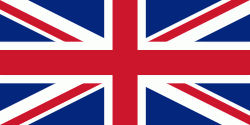Gaelic language
The Goidelic or Gaelic languages (teangacha Gaelacha; cànanan Goidhealach; çhengaghyn Gaelgagh) form one of the two groups of Insular Celtic languages, the other being the Brittonic languages.
Goidelic languages historically formed a dialect continuum stretching from Ireland through the Isle of Man to Scotland. There are three modern Goidelic languages: Irish (Gaeilge), Scottish Gaelic (Gàidhlig), and Manx (Gaelg). Manx died out as a first language in the 20th century but has since been revived to some degree.
Gaelic, by itself, is sometimes used to refer to Scottish Gaelic, especially in Scotland, and so it is ambiguous. Irish and Manx are sometimes referred to as Irish Gaelic and Manx Gaelic (as they are Goidelic or Gaelic languages), but the use of the word "Gaelic" is unnecessary because the terms Irish and Manx, when used to denote languages, always refer to those languages. This is in contrast to Scottish Gaelic, for which "Gaelic" distinguishes the language from the Germanic language known as Scots.
The endonyms (Gaeilge, Gaelic and Gaolainn in Irish, Gaelg in Manx and Gàidhlig in Scottish Gaelic) are derived from Old Irish Goídelc, which in turn is derived from Old Welsh Guoidel meaning "pirate, raider". The medieval mythology of the Lebor Gabála Érenn places its origin in an eponymous ancestor of the Gaels and the inventor of the language, Goídel Glas.
Goidelic languages historically formed a dialect continuum stretching from Ireland through the Isle of Man to Scotland. There are three modern Goidelic languages: Irish (Gaeilge), Scottish Gaelic (Gàidhlig), and Manx (Gaelg). Manx died out as a first language in the 20th century but has since been revived to some degree.
Gaelic, by itself, is sometimes used to refer to Scottish Gaelic, especially in Scotland, and so it is ambiguous. Irish and Manx are sometimes referred to as Irish Gaelic and Manx Gaelic (as they are Goidelic or Gaelic languages), but the use of the word "Gaelic" is unnecessary because the terms Irish and Manx, when used to denote languages, always refer to those languages. This is in contrast to Scottish Gaelic, for which "Gaelic" distinguishes the language from the Germanic language known as Scots.
The endonyms (Gaeilge, Gaelic and Gaolainn in Irish, Gaelg in Manx and Gàidhlig in Scottish Gaelic) are derived from Old Irish Goídelc, which in turn is derived from Old Welsh Guoidel meaning "pirate, raider". The medieval mythology of the Lebor Gabála Érenn places its origin in an eponymous ancestor of the Gaels and the inventor of the language, Goídel Glas.
Country
-
United Kingdom
The United Kingdom of Great Britain and Northern Ireland, commonly known as the United Kingdom (UK) or Britain, is a country in Europe, off the north-western coast of the continental mainland. It comprises England, Scotland, Wales and Northern Ireland. The United Kingdom includes the island of Great Britain, the north-eastern part of the island of Ireland, and many smaller islands within the British Isles. Northern Ireland shares a land border with the Republic of Ireland; otherwise, the United Kingdom is surrounded by the Atlantic Ocean, the North Sea, the English Channel, the Celtic Sea and the Irish Sea. The total area of the United Kingdom is 242,495 km2, with an estimated 2020 population of more than 67 million people.
The United Kingdom has evolved from a series of annexations, unions and separations of constituent countries over several hundred years. The Treaty of Union between the Kingdom of England (which included Wales, annexed in 1542) and the Kingdom of Scotland in 1707 formed the Kingdom of Great Britain. Its union in 1801 with the Kingdom of Ireland created the United Kingdom of Great Britain and Ireland. Most of Ireland seceded from the UK in 1922, leaving the present United Kingdom of Great Britain and Northern Ireland, which formally adopted that name in 1927. The nearby Isle of Man, Guernsey and Jersey are not part of the UK, being Crown Dependencies with the British Government responsible for defence and international representation. There are also 14 British Overseas Territories, the last remnants of the British Empire which, at its height in the 1920s, encompassed almost a quarter of the world's landmass and a third of the world's population, and was the largest empire in history. British influence can be observed in the language, culture and the legal and political systems of many of its former colonies.
